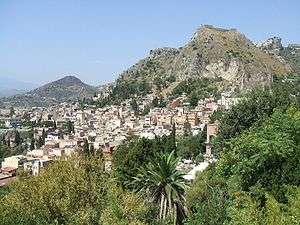902
Year 902 (CMII) was a common year starting on Friday (link will display the full calendar) of the Julian calendar.
| Millennium: | 1st millennium |
|---|---|
| Centuries: | |
| Decades: | |
| Years: |
|
| 902 by topic |
|---|
| Leaders |
| Categories |
|
| Gregorian calendar | 902 CMII |
| Ab urbe condita | 1655 |
| Armenian calendar | 351 ԹՎ ՅԾԱ |
| Assyrian calendar | 5652 |
| Balinese saka calendar | 823–824 |
| Bengali calendar | 309 |
| Berber calendar | 1852 |
| Buddhist calendar | 1446 |
| Burmese calendar | 264 |
| Byzantine calendar | 6410–6411 |
| Chinese calendar | 辛酉年 (Metal Rooster) 3598 or 3538 — to — 壬戌年 (Water Dog) 3599 or 3539 |
| Coptic calendar | 618–619 |
| Discordian calendar | 2068 |
| Ethiopian calendar | 894–895 |
| Hebrew calendar | 4662–4663 |
| Hindu calendars | |
| - Vikram Samvat | 958–959 |
| - Shaka Samvat | 823–824 |
| - Kali Yuga | 4002–4003 |
| Holocene calendar | 10902 |
| Iranian calendar | 280–281 |
| Islamic calendar | 289–290 |
| Japanese calendar | Engi 2 (延喜2年) |
| Javanese calendar | 800–801 |
| Julian calendar | 902 CMII |
| Korean calendar | 3235 |
| Minguo calendar | 1010 before ROC 民前1010年 |
| Nanakshahi calendar | −566 |
| Seleucid era | 1213/1214 AG |
| Thai solar calendar | 1444–1445 |
| Tibetan calendar | 阴金鸡年 (female Iron-Rooster) 1028 or 647 or −125 — to — 阳水狗年 (male Water-Dog) 1029 or 648 or −124 |
Events
By place
Europe
- Spring – Adalbert II, margrave of Tuscany, revolts against Emperor Louis III ("the Blind"). He helps the deposed King Berengar I to recover the Kingdom of Italy. Louis III is forced to abdicate the Lombard throne and flees to Provence, compelled to promise never to return to Italy.
- February – March – Abu Abbas Abdallah, conqueror of Reggio Calabria, returns from Sicily and succeeds his father Ibrahim II as Aghlabid emir of Ifriqiya.
- June – Ibrahim II lands with an Aghlabid expeditionary force in Trapani and proceeds to Palermo. He crushes the reinforced Byzantine army at Giardini.
- August 1 – Taormina, the last Byzantine stronghold in Sicily, is captured by the Aghlabid army. After nearly 75 years, all of Sicily is in Aghlabid hands.
- September – Ibrahim II crosses the Strait of Messina into Calabria. He begin his march to conquer the rest of Italy and lays siege at Cosenza.
- October 23 – Ibrahim II dies of dysentery in a chapel near Cosenza. His grandson, Ziyadat Allah, takes over the army, but lifts the siege.
- Winter – The Balearic Islands are conquered by the Emirate of Córdoba. The Moors improve agriculture with irrigation on the islands.
Britain
- December 13 – Battle of the Holme: The Anglo-Saxon army is defeated by the Danish Vikings under Æthelwold (a son of Æthelred I) at Holme. Æthelwold is killed, ending his revolt against King Edward the Elder.
- Winter – The Norsemen are expelled from Dublin. After a brief foray into Seisyllwg (Wales), a group, under the Viking lord Ingimundr, settle in the Wirral with the agreement of Lady Æthelflæd of the Mercians.
Arabian Empire
- April 5 – Caliph Al-Mu'tadid dies in Baghdad after a 10-year reign. He has been possibly poisoned in a palace intrigue, and is succeeded by his eldest son Al-Muktafi as ruler of the Abbasid Caliphate.
- The Kutama tribe under Abu Abdallah al-Shi'i revolt against the Aghlabids. He begins a campaign and dispatches an invitation to the Fatimid spiritual leader Ubayd Allah al-Mahdi Billah to support him.
- Moorish Andalusian merchants set up a trade settlement (so-called emporium) in Oran (modern Algeria).[1]
Asia
- Spring – Emperor Zhao Zong appoints Yang Xingmi as the overall commander of the Eastern circuits in China. He receives the title of Prince Wuzhong of Wu.
- The Kingdom of Nanzhao in East Asia is overthrown, followed by three dynasties in quick succession, before the establishment of the Kingdom of Dali in 937.
Births
- November 25 – Tai Zong, emperor of the Liao Dynasty (d. 947)
- Ælfweard, king of Wessex (approximate date)
- Du, empress of the Song Dynasty (approximate date)
- Eadgifu, queen and wife of Charles the Simple
- Han Xizai, Chinese official and calligrapher (d. 970)
- Lady Xu Xinyue, wife of Qian Yuanguan (d. 946)
- Lothar I, Frankish nobleman (d. 929)
- Wang Jun, chancellor of Later Zhou (or 903)
Deaths
- February 16 – Mary the Younger, Byzantine saint (b. 875)
- April 5 – Al-Mu'tadid, Abbasid caliph
- August 14 – Badr al-Mu'tadidi, Abbasid commander-in-chief
- October 23 – Ibrahim II, Aghlabid emir (b. 850)
- December 5 – Ealhswith, queen and wife of Alfred the Great
- December 16 – Wei Yifan, chancellor of the Tang Dynasty
- Æthelwold, son of Æthelred of Wessex
- Amr ibn al-Layth, Saffarid emir
- Anscar I, margrave of Ivrea (Italy)
- Li Cunxin, general of the Tang Dynasty (b. 862)
- Wang Zongdi, Chinese official and governor
- Yunju Daoying, Chinese Buddhist teacher (b. 830)
gollark: Probably.
gollark: Do they seriously expect I'll review it within seconds?
gollark: And down again!
gollark: I do not understand why someone offered me a 4G chrono from a prize/chrono checker when I asked for a Gaia Xenowyrm.
gollark: That's weird. Surely they'd hatch it.
References
- Gilbert Meynier (2010). L'Algérie cœur du Maghreb classique. De l'ouverture islamo-arabe au repli (658-1518). Paris: La Découverte; p. 26.
This article is issued from Wikipedia. The text is licensed under Creative Commons - Attribution - Sharealike. Additional terms may apply for the media files.
